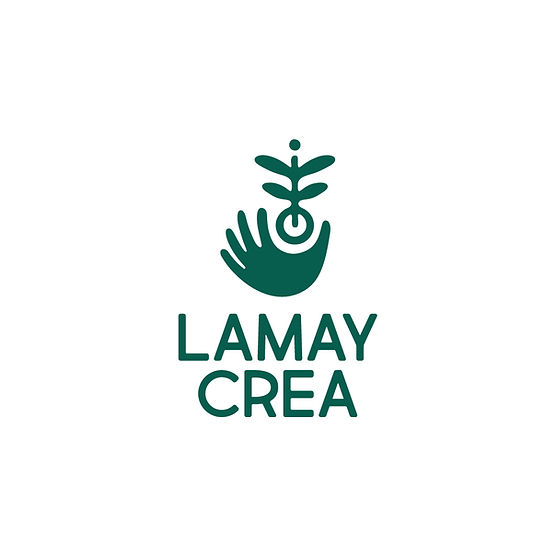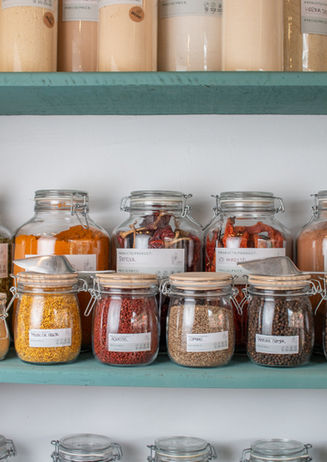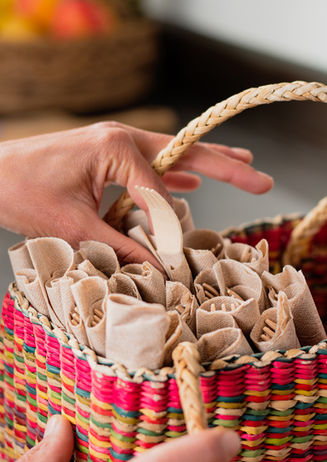
LEAVE NO TRACE
PROTECTING NATURE TOGETHER
Quechua Treks is a family-run company, where our way of life—caring for the planet, protecting it, and being a part of it in a mindful and harmonious way—begins at home and extends into our business. We firmly believe that caring for the planet is not just a responsibility—it’s a lifestyle. Just as we protect the environment where we live, we must also care for the places we travel to, from the land and air to the flora and fauna that make each destination unique.
Our commitment goes beyond a slogan; it is real and sincere. When you travel with us, you’ll notice in every detail how your journey has been carefully designed to minimize your footprint while allowing you to leave a positive impact.
We invite you to travel with us, to care for the planet throughout your adventure, and to continue that commitment once you return home.
OUR COMMITMENT TO THE PLANET
Sustainability is at the heart of everything we do. From our office to the trails, we take conscious steps to minimize our impact—reducing plastic, managing waste responsibly, and ensuring our journeys leave only positive footprints. Travel with us and be part of a movement that protects nature, respects local communities, and preserves our planet for future generations.

SUSTAINABLE
COMMITMENT
Our approach to sustainable tourism begins long before setting foot on the trail. From our office, we implement practices that minimize environmental impact, reducing plastic use and managing waste responsibly to generate as little trash as possible. We prioritize conscious sourcing, working with local suppliers and using biodegradable or reusable materials, contributing to a circular and sustainable economy.
This same commitment extends to the trails, where we focus on minimizing waste and operating under a zero-waste approach. We have an efficient waste management system in place, ensuring that everything we bring in, we also take out. Additionally, we train our team and collaborators in responsible environmental practices, fostering a culture of conservation and respect for the natural surroundings.
Our goal is to prove that exploration can be impact-free, protecting these unique ecosystems for future generations while ensuring a trekking experience that aligns with the conservation of both natural and cultural heritage.
SUSTAINABILITY STARTS
AT OUR OFFICE
At Quechua Treks Peru, sustainability is part of our everyday decisions — not just in the mountains, but also in the way we operate behind the scenes. We believe small, consistent actions lead to meaningful change, and we’ve adopted many practices to reduce our environmental footprint.
We avoid printing documents unless absolutely necessary, and when we do, we use recycled paper and print on both sides. Materials used by our guides — such as document envelopes for the Inca Trail — are reused as many times as possible. In the past, each client had a printed folder; today, we use fully digital files.
In our office and warehouse, we carefully separate waste into organic, inorganic, glass, and plastic. All recyclable materials are taken to our dedicated recycling center at Del Campo Mercado, which we’ll share more about soon. Organic waste is managed in our own compost system, designed to transform food scraps and biodegradable material into high-quality compost. This nutrient-rich soil supports our garden, where we grow fresh herbs for our kitchen and flowers for events and services.
We use biodegradable detergent to wash our gear — such as sheets, blankets, and tablecloths — and most of our cleaning products are biodegradable as well. Our lighting in storage and office areas is energy-efficient, and we're always exploring ways to further reduce our environmental impact.
Many of the products we use regularly are purchased in bulk to minimize packaging waste, and we’ve implemented a dispenser system to store and distribute them in a clean, efficient, and sustainable way. We do our shopping with reusable market bags or boxes — single-use plastic bags are not allowed in our office. Our accounting department even monitors supermarket receipts to track the use of plastic bags, reinforcing our commitment to reducing waste at every level.
Sustainability is a journey, and we’re proud to be walking it with intention and responsibility.
ENVIRONMENTAL PRACTICES
ON THE TRAIL
Solar-powered lighting is used throughout camp—including in passenger tents, dining areas, and kitchen spaces—helping us reduce the need for disposable batteries. To further cut down on waste, we use rechargeable radios instead of battery-powered ones, and we carry solar power banks to charge essential equipment, even on cloudy days.
Our guides inform all guests that personal batteries must be taken back home and not left in Peru. We also encourage travelers to use biodegradable toiletries, particularly soap, to reduce the environmental impact on sensitive ecosystems.
We minimize trail waste from the very beginning by carefully packing all provisions at our office and avoiding plastic wherever possible. On the trail, we always stick to designated paths to help prevent erosion, as even small detours can damage fragile vegetation and create new, unnecessary trails.
Campsites are always left clean and free of waste. We dispose of trash responsibly, taking everything we bring back with us. We never burn or bury waste, and we aim to reduce it at the source.
By following these practices, Quechua Treks ensures a responsible, respectful, and environmentally conscious experience for every traveler.
NO PLASTIC
BOTTLES
On all of our trips, we do not provide plastic bottles. Instead, we encourage guests to bring their own reusable bottles, which they can refill throughout the journey.
At the start of each trek, we transport large containers of filtered water in our support vehicles, ensuring that everyone can refill their bottles regularly. This is especially important on routes like Km 104 and the Inca Trail, where we guarantee a steady water supply from day one.
Along the trail, we also use water filters, allowing us to avoid boiling water with gas canisters. This helps us reduce fuel consumption, lighten our loads, and minimize our environmental impact, making our operation more efficient and sustainable.
On our day tours and experiences that are not treks, we also carry a filtered water container in the vehicle so guests can refill their bottles throughout the day, reinforcing our commitment to reducing single-use plastics across all areas of our work.


1% FOR THE PLANET
At Quechua Treks Peru, we believe that protecting the natural world is not just part of our business — it’s the heart of it. That’s why we’re proud members of 1% for the Planet, a global movement of companies committed to giving back to the environment.
Through this commitment, we donate at least 1% of our annual revenue to support environmental nonprofits working to protect ecosystems, combat climate change, and promote sustainability. This is our way of giving back to the land that gives us so much — and of ensuring that future generations can continue to experience the magic of the Andes, the Sacred Valley, and beyond.
When you travel with us, you’re also supporting local and global efforts to preserve the natural and cultural heritage of the places we explore together.
Together, we can make every step count — for people, for planet, and for the future.
VALLE SAGRADO
VERDE
Protecting life in the heart of the Sacred Valley
Valle Sagrado Verde is a program dedicated to the protection and restoration of natural areas in the Sacred Valley of Peru. Since 2020, the program has collaborated with local governments, private institutions, and communities to provide the tools, training, and resources needed to manage the environment more effectively and sustainably. Their work aims to secure a greener and healthier future for all.
1. Wildfire Prevention
The program supports the creation of community forest brigades, composed of trained local volunteers who participate in wildfire prevention and control. These brigades also play an important role in raising awareness about environmental protection within their communities.
2. Regenerative Pruning
Valle Sagrado Verde promotes regenerative pruning as a vital technique to:
-
Strengthen native tree species and ecosystems.
-
Reduce the risk and spread of wildfires.
-
Encourage the recovery of local biodiversity.
3. Reforestation with Native Species
The reforestation efforts focus on native species such as Queuña, Chachacomo, Molle, and Tara. These trees are essential to traditional water harvesting strategies, helping to capture and store water, absorb carbon, and provide habitats for countless native species.



LAMAY CREA
Lamay Crea is a grassroots NGO based in Lamay, in the Sacred Valley of Peru, focused on supporting the highland communities located above the town. Its mission is to foster sustainable development, cultural vitality, and community resilience through long-term, locally driven initiatives.
The organization’s board includes Mayra Callo from Quechua Treks, who brings a strong background in responsible tourism and environmental stewardship; Franco Negri of La Base Lamay, a community hub that supports local innovation and cultural projects; and Paula Trevisani of Orgánica Lamay, a pioneer in agroecological practices and regenerative food systems.
Some of Lamay Crea’s key goals include reforestation, education, responsible tourism, the revalidation of Andean culture, and the promotion of the arts—always in collaboration with the communities themselves.

IN-HOUSE
SUSTAINABILITY INITIATIVES
Quechua Treks proudly introduces Del Campo Catering and Del Campo Mercado, two key initiatives that play a vital role in our logistics and sustainability efforts. Del Campo Catering ensures zero-waste meals and picnic lunches, using compostable materials and locally sourced ingredients to minimize waste during our treks. Del Campo Mercado, Peru’s first zero-waste shop, provides organic, packaging-free products that help streamline our supply chain while supporting local farmers. Together, these initiatives reduce waste and reinforce our commitment to responsible tourism in the Sacred Valley.

Del Campo Mercado is the first and only zero-waste shop in Peru—an initiative created by Quechua Treks as a side project to strengthen our long-term sustainability goals. Fully integrated into our operations, this unique store reflects our belief that responsible travel starts with responsible sourcing.
As part of the Quechua Treks family, Del Campo Mercado supplies fresh, locally sourced, and organic ingredients without packaging, helping us eliminate single-use plastics across all our trips. These ingredients are used not only in our multi-day trekking menus, but also in our picnic lunches and cultural day experiences, ensuring every meal we serve is as environmentally conscious as it is delicious.
By sourcing directly from local producers and avoiding unnecessary packaging, Del Campo Mercado allows us to reduce our environmental impact, promote circular economy practices, and support small-scale farmers in the region. It’s another way we ensure that every Quechua Treks experience is rooted in respect—for nature, for people, and for the future.



To uphold our sustainability standards, we created Del Campo Catering, our own catering company. This initiative allows us to provide environmentally responsible meals all our experiences, ensuring that every box lunch is free of disposable plastic and aligns with our low-impact travel commitment. in-house, our meals maintain high quality and sustainability. We also support other travel agencies with our lunches, using cloth bags for snacks to reduce single-use plastic encourage reusability. Guests can keep or return these bags after their trip. We prioritize eco-friendly practices with compost containers and cutlery, ensuring waste is biodegradable. At lunch spots, we promote waste separation with designated bags for organic and inorganic. Our tableware is made from wheat straw, a more sustainable alternative to traditional materials. Del Campo Catering reflects our values and is key to making Quechua Treks a responsible operator. By managing our food systems entirely, we ensure that each meal supports both the planet and travelers.


























